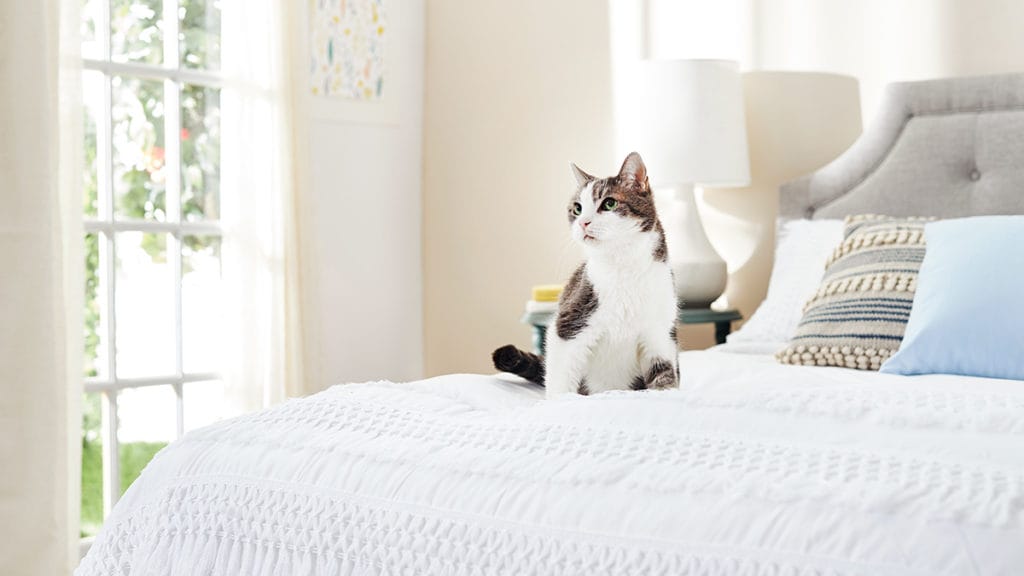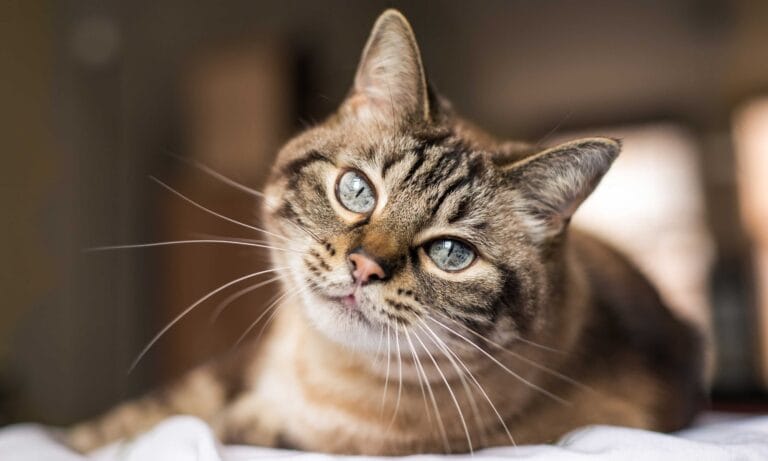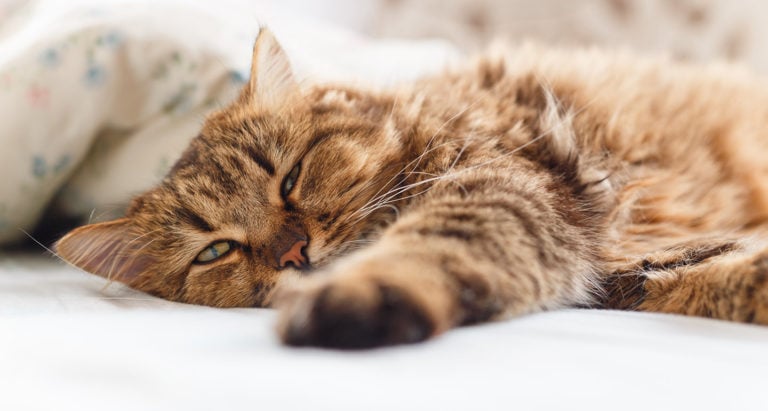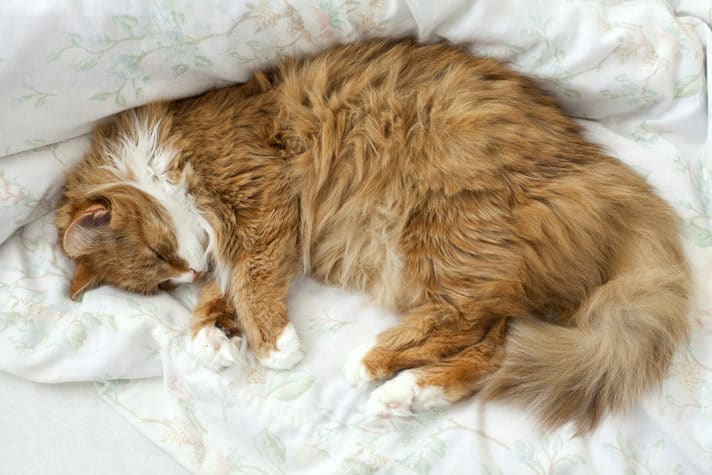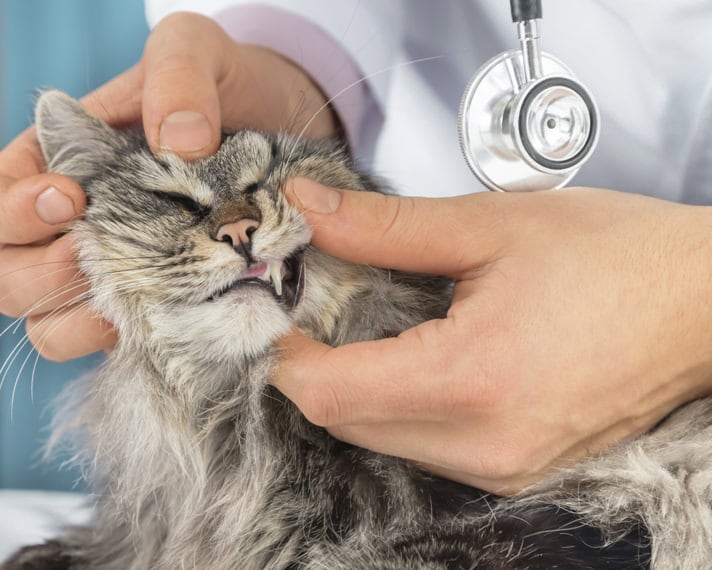Thanks to modern medicine and excellent care by their pet parents, cats are living longer and better lives now than any other time in recorded history. As any cat lover can tell you, senior cats are wonderful companions. Even though they are past the kitten crazies, older cats still enjoy playing, and they often make excellent cuddle partners.
It’s important to recognize that senior cats have different needs than their younger counterparts. If you know at what age your cat is considered a senior and how that impacts her health, you can better care for her during her golden years.
At What Age Is My Cat a Senior?
In most cases, a veterinarian will deem a cat to be a senior when she is 7-10 years of age. By the time your cat is 10 years or older, a common term you might hear your vet use to describe your cat is “geriatric.”
This term also is used in human medicine to distinguish people who are of advanced age and require special care. If your vet classifies your cat as geriatric, this simply means that to promote good quality of life and longevity, you need to give your cat’s health special consideration.
What Are the Signs of Aging in Cats?
Detecting the signs of aging in cats can be tricky because felines tend to hide discomfort and disease. They do this because, in the wild, cats are considered both predator and prey, and if they show any signs of weakness or sickness, they are more likely to be preyed upon. Therefore, cats have evolved to hide any sign of pain, weakness or sickness.
That doesn’t mean you can’t detect the signs of aging in your cat. You just need to watch for more subtle clues. Signs of aging or underlying disease can include the following:
* Weight loss or gain
* Decreased energy and sleeping more
* Loss of interest in jumping or playing (might indicate hidden joint pain)
* Change in appetite
* Decreased vision or hearing
* Changes in haircoat—increased matting, oil, dandruff or hair loss
* Change in vocalization
* Changes in behavior
* Increased anxiety or aggression
* Increased water consumption
* Increased urination
* Cat litter box problems, including urinating or defecating outside the litter box
Discover more signs of aging in cats.
How Do I Care for My Senior Cat?
Appropriate nutrition, exercise, mental stimulation, pain control and veterinary care are the top recommendations for senior cat care.
Nutrition
Proper nutrition means not only feeding the right foods but also feeding the appropriate amounts. If your cat is overweight, then she is at increased risk for type 2 diabetes and arthritis pain. However, cats cannot be put on a drastically reduced calorie diet because such a major change could stress them and affect their liver health. If your cat is overweight, work with your veterinarian to determine a healthy weight for your cat, and then create a safe and effective weight loss plan.
Senior cats also may not be able to digest food as easily as their younger counterparts, so feeding a complete and balanced senior diet, like Blue Buffalo Healthy Aging Chicken & Brown Rice Recipe for mature cats, is vital for their overall wellbeing.
Physical and Mental Exercise
Obesity and arthritis are common concerns for older cats, which is why keeping your cat fit is an important part of keeping her healthy. Senior cats enjoy playing with toys, such as feathered wands, and most can’t resist catnip-enhanced cat toys.
You also can toss kibble for your cat to hunt. Or take her daily food allotment, split it up into four or five portions, and put them around the house, preferably elevated so your cat must jump. All of these options can help sharpen your cat’s mind and trim her body.
Pain Control
Because cats hide pain, many pet parents are unaware that their senior kitty is suffering silently from arthritis pain. Arthritis is very common in older cats. A 2011 study showed that 61 percent of cats older than 6 years old had osteoarthritis in at least one joint.
If you have noticed your older cat slowing down, jumping or playing less, or hiding more, then arthritic pain could be the culprit. Talk with your veterinarian about pain management options for older kitties. There are many remedies available nowadays, from acupuncture to pain medication.
On top of working with your veterinarian, there are many things you can do at home to help an arthritic kitty. These include:
* Providing your cat with a heated bed to comfort aching joints
* Giving your cat a litter box with lower sides to make getting in and out of it easier
* Placing ramps or stairs around your home so your cat can get up and down on things
Veterinary Care
Things can change rapidly in an older cat’s body, which is why senior felines should receive an examination from a local veterinarian every year and, in some cases, twice a year. During a yearly examination, your vet can do laboratory testing to check under the hood for common illnesses, like kidney or dental disease.
With just a little TLC, any aged feline can live well into her teens and beyond. Plus, if you know what to expect ahead of time, then you can set up your cat for a wonderful quality of life during her golden years.
Share:
